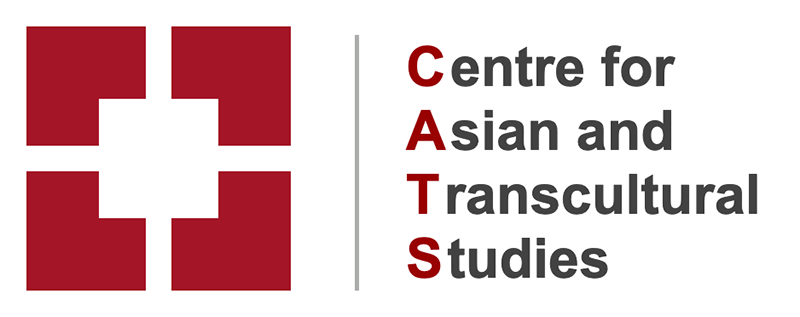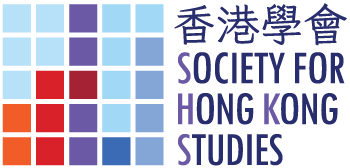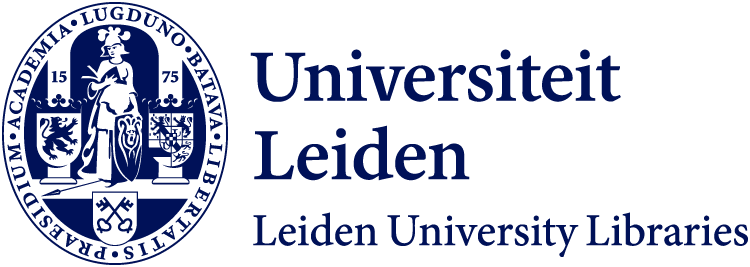In 2023, we celebrate the tenth edition of the ICAS Book Prize (IBP). In the previous issue of The Newsletter (Issue #94), we highlighted four partners with whom we co-organise the different prizes of the IBP. In this issue, we highlight five more such partners. The IBP English Language Edition also features dissertation prizes in the humanities and social science category. In this article, the Chair of the IBP Dissertation Reading Committee will share her experiences. Over the years, the IBP has become on the of the largest and most prestigious book prizes of its kind, and the IBP secretariat would like to thank all its partners for their continued support and enthusiasm.
Co-Organiser of the Japanese Language Edition
IDE-JETRO is one of the representative research institutes of social science in Japan, with more than a hundred resident research fellows and associate and visiting scholars from around the world. IDE-JETRO, since its establishment in 1960, has stood out for its multi-disciplinarity: scholars from area studies, economics, and political science work together and, each year, conduct over 160 research projects that cover a broad range of topics on developing and emerging economies, such as economy, society, politics, and international relations in Asia, the Middle East, Africa, Latin America, and Oceania. Based on its mission of “intellectual contribution to the world,” the institute has yielded voluminous high-quality products, such as long-lasting area studies reports (e.g., Year Book of Asian Affairs) and IDE-GSM (a CGE model enabling detailed geographic-economic simulation). The institute also has a unique library specializing in collections of publications and documents from developing countries, including historically precious documents from previous Japanese colonies before 1945.
IDE-JETRO has also developed extensive networks with research institutes abroad, including the IIAS. Since IDE-JETRO and IIAS concluded an MOU in 2019, the two organizations have intensified existing collaboration in the form of workshops on challenges of urbanization in Asia. In 2022, the inter-organizational trust resulted in co-organizing the ICAS Book Prize (IBP) 2023 Japanese Language Edition by IDE-JETRO and IIAS. While researchers and specialists of IDE-JETRO speak 28 languages to access local sources in countries of their interest, it is a core belief of the institute that it has an obligation to share insights in the Japanese language with those who are interested in developing economies, wherever they are living. Being one of the co-organizers of the IBP 2023 provides IDE-JETRO with a great opportunity to realize this belief, extending its reach to the next level.
Outcomes of the research by IDE-JETRO are stored in an institutional repository, the Academic Research Repository at the Institute of Developing Economies (ARRIDE, ir.ide.go.jp/), on its website (www.ide.go.jp/English.html), and in other public repositories such as J-STAGE (www.jstage.jst.go.jp/browse/-char/en). Under the open access policy promoted by the Government of Japan, and in the highest conformity with the institutional value of distributing high-quality outcomes from research, all publications from IDE-JETRO are digitized. Most are free to obtain and utilize as long as they are given appropriate credit, including e-books under a Creative Commons license. Please visit the above URLs to explore the research by IDE-JETRO.
www.ide.go.jp
twitter.com/ide_jetro
youtube.com/@user-wk9li7py1c
Sponsor and Organiser of the Korean Language Edition
Seoul National University Asia Center (SNUAC) is a research and international exchange institute based in Seoul, South Korea. Since its launch in February 2009, it has pursued its mission to be a global hub of Asian Studies by integrating regional and thematic studies about Asia and the World. As of 2023, SNUAC comprises the HK+ Mega-Asia Research Project Group, seven regional centers, seven thematic programs, and the Asia Regional Information Center that collects and manages regional information and data. It has also laid a strong foundation for its mission through a wide range of supporting activities, fully engaging in building a network of Asian scholars and nurturing next-generation academics.
SNUAC has been working with ICAS to hold the ICAS Book Prize Korean Language Edition for the last eight years. From Chiang Mai (ICAS 10) to Leiden (ICAS 11) and Kyoto (ICAS 12), we organized and sponsored the Prize to introduce outstanding academic works written in Korean to the Asian Studies community. We are currently in the process of reviewing the 62 submitted books to select the original and path-breaking works for the 2023 Prize.
From the beginning, we organized book talk series of shortlisted books to disseminate the award-winning books to the general public beyond academia. We also had an Asian Studies book fair where Award-winning titles of the ICAS Book Prize in several languages were exhibited at the Main Library, sponsored by the Seoul National University Library. In the middle of the COVID-19 pandemic, we started making the book talk series available on YouTube. Please visit the Korean IBP site to browse the winning books, citations, abstracts, authors’ bio-notes, and book talk series by editions: http://snuac.snu.ac.kr/2023ibp
Over the editions, we set up our own rules for organizing the book prize. For example, when constructing the reading committee, we made it a tradition to include the award winners of the preceding IBP. In addition, after the shortlisted books are announced, the reading committee members are invited to preside over the book talk series. We hope that such good rituals will be added more in the coming years. Stay tuned for updates and news on the IBP 2023 Book Prize Korean Language Edition!
Sponsor and Organiser of the French Language Edition
It has been eight years now since GIS Asie joined the ICAS Book Prize to start the French Edition. Aurélie Varrel took over as secretary in 2018-19, with the support of Gosia Chwirot as acting secretary. Now that GIS Asie has co-organised and sponsored the French Editions of IBP three times, and based on this rich experience, we can develop some considerations about what is being published on Asia in French.
The number of books submitted has decreased from more than 30 in 2016-17 to hardly more than 20 for the 3rd and 4th editions. This is for good and not-so-good reasons. During the first years, we received many books that did not fit the requirements (coffee table books with light content, tourist guide books), and publishers now have a better understanding of the prize’s characteristics. A second reason of more concern for us is the general decrease in books published in the humanities and social sciences, which also affects the field of Asian Studies.
In terms of content, the books reflect the interest of the French audience for the Far East with a dominant number of books on China, Taiwan, and Japan, as well as the specificities and strengths of French scholarship, namely with the presence of remarkable books on Vietnam/Indochina in almost each of our shortlists. Our committee’s selections result from a fine balance between acknowledging these ‘national’ features and promoting original work on less-travelled paths, countries or topics.
Compiling the submissions allows us also to draw a vibrant panorama of scholars publishing in French. Two university presses, in particular, are well-known for their publications on Asia: Presses de l’Inalco and EFEO (Ecole Française d’Extrême-Orient). The 3rd edition winner, La réforme politique en Birmanie pendant le premier moment colonial (1819-1878) by Aurore Candier, was published by EFEO; among many reasons, the award intended to pay tribute to the skills and know-how of EFEO press for a volume that includes long texts in old Burmese. Overall, there has been an increase in the number of university press publishers in France over the past three decades, providing more options, especially for young scholars, somewhat paradoxically when we bear in mind the general decline in the number of books published. Beyond the university presses’ circle, we should mention Editions des Belles Lettres, a century-old private publisher with a commitment to classical humanities and orientalism that extends to more recent topics and supports the publishing of new reference book series, such as the IBP French Edition winner in 2021: Les Dynasties Qin et Han (221 av. J.-C.-220 apr. J.-C.) by Michèle Pirazzoli and Marianne Bujard, a volume that is part of a renewed « Histoire générale de la Chine » book series. We can mention also Société Française d’ethnologie, which maintains a medium-size press. They have published many monographs that made it to our shortlists, including the 1st winner, Le parler des dieux. Le discours rituel santal entre l'oral et l'écrit (Inde) by Marine Carrin. For the 3rd edition, the committee shortlisted books coming from private, small-size, recent publishers that often develop innovative formats and publish volumes with rich visual content and on original or emerging topics, which is both a refreshing and soothing trend that deserves to be acknowledged. The IBP French Edition is indeed the only book prize for publications about Asia in French, hence a unique source of prestige for authors and publishers.
Although not eligible for the IBP, one should make a final mention here of the efforts of some authors and university presses to publish translations into French of books authored by Asian scholars (especially in Japanese). These efforts make their work known and encourage entering into dialogue with non-Asia specialists, which commands respect.
Organiser of the Portuguese/Spanish Language Edition
Since 2017, SEPHIS has been the official organizer of the ICAS Book Prize in Portuguese and Spanish Languages, which has been awarded every two years to outstanding publications in the field of Asian Studies, engaging with SEPHIS’s mission to promote the epistemological diversification of science, especially in fields where the challenges for a scholar from the South are more pronounced.
The South-South Exchange Programme for Research on the History of Development (SEPHIS) has its origins in the workshop ‘Historical Dimension of Development, Change and Conflict in the South,’ held at the Ministry of Foreign Affairs in The Hague in 1993. Over the years, SEPHIS has initiated, supported, and facilitated a large number of activities, particularly in the humanities, in relation to scientific and social policies. Initiatives have focused simultaneously on individual grants, training workshops, institutional capacities, knowledge production, preservation, and circulation.
We believe this book prize is an opportunity to further enlarge the scholarship on Asia and, in particular, to challenge the compartmentalization of the Global South promoted by the area studies division. Our book prize recognizes the editorial endeavor undertaken by both publishers and scholars based in countries where Asia is not necessarily a prestigious or consolidated field of study. As epistemological and institutional inequalities affect the dynamics of knowledge production, studies on Asia are still dominated by European and North-American academia. In this context, the SEPHIS-ICAS Book Prize seeks to challenge structural inequalities and deleterious biases that hinder scholars' careers in their endeavor to read and write about the world in its entirety.
SEPHIS foresees this award not only as a way to recognize the excellence of research and publications but also, and especially, as an active mechanism to produce a community of Asian Studies across languages and spaces, joining both Spanish- and Portuguese-speaking scholars. Since our first edition, publishers and authors from Latin America, Macau, Timor, Portugal, and Spain have submitted nearly 300 books in Spanish and Portuguese – making Spanish and Portuguese one of the largest linguistic communities of publications submitted to the ICAS Book Prize. In this sense, it is a way of recognizing the collective commitment not only of researchers, but also of a long chain of professionals who are made invisible by the mechanisms of individual authorship: archivists, advisors, editors, reviewers, etc. Finally, ICAS-SEPHIS Book Prize has been conceived as an opportunity to promote equity and social justice. Accepting e-books from many places in the Global South reconnects us with SEPHIS's institutional mandate to challenge inequalities and actively promote equity policies in sciences.
SEPHIS’s social media channels have directly reached nearly 10,000 scholars and institutions worldwide. The most striking result was when in 2019, with around 70 publications submitted for the Portuguese and Spanish editions, it became the second largest group of publications submitted to the prize after English. Nevertheless, we decided not to differentiate between the social sciences and the humanities, nor even between the two languages, in order to build bridges between the two academic and linguistic groups.
For our IBP 2023 Portuguese/Spanish Language Edition, SEPHIS was joined by Casa Asia – a public diplomacy institution created in 2001, with the support of the Spanish Ministry of Foreign Affairs, to facilitate the exchange of cultures and projects of common interest between Spain and the Asia-Pacific countries in order to achieve better knowledge and mutual understanding. Partnering with Casa Asia invigorates and enhances what has been accomplished thus far, bringing renewed energy to our common goal.
It is safe to say that since its inception in 2005, the ICAS Dissertation Prize has become one of the most important and competitive awards in the field of Asia Studies, both in the humanities and social sciences. It can be a career-changing moment for young scholars distinguished with this prize. But what is the story behind the curtains of this award? The winners of this edition, just like previous ones, will have the chance to share their feelings and experiences related to the ICAS Dissertation Prize at the Award Ceremony. However, one might wonder: how does being on the judging committee feel? That is, how does it feel to be an insider of this project?
As the Chair of the Dissertation Committee, I can share that there is excitement in exchanging thoughts with the readers: Allysa Parades, Do Young Oh, Jayati Bhattacharya, and Kathleen Gutierrez, brilliant scholars who do not mind the hurdles of scheduling online meetings in which 'good morning,' 'good afternoon,' and 'good evening' are all appropriate, reading 124 dissertations that were jointly submitted for this edition, and exchanging late-night and early-morning emails. There is, of course, the excitement about the chance to read, understand, and learn. Moreover, being a part of the Dissertation Committee comes with a sense of tremendous responsibility to continue the mission of Alex McKay and Paul van der Velde: to judge fairly and with criteria of true excellence in mind. We aim to select the theses not because of the impressive resumes of the authors but because of the ways their work influences the ‘state of the art’: theses that are analytically impeccable; theses in which the authors deliver what they promised; theses which expand the existing theories; theses that are supported by evidence and are methodologically flawless.
And what can we choose from in this edition? Unsurprisingly, in the humanities, the tendency is towards historical studies; in the social sciences, towards anthropological and sociological studies. However, the trend is also to use methods and theories that answer the research questions rather than those that are ‘traditionally’ associated with a particular discipline. Moreover, although it seems that most dissertations, perhaps reflecting geopolitical significance, are concerned with China and India, this trend is not as clear as it used to be. This poses an interesting question about the future of Asian Studies: will scholarly interest be ‘fairer’ towards ‘different countries and regions’? For example, in the Humanities category, we received quite a few studies on Japan, but cross-regional and cross-national studies seem to be much rarer. Environmental, feminist, and queer studies continue to attract young researchers, reflecting some of the biggest challenges in the contemporary world. A noteworthy observation is that there is a shift towards a more detailed analysis of ‘political economy’ and political and geopolitical circumstances.
Even though we do not consider the authors' backgrounds in the judging process, we still strive to increase inclusiveness. Thus, we were happy to receive more theses from less popular (in terms of submissions) parts of the world (for example, Germany and Finland) and less-privileged places (for example, India). Last but not least, reading dissertations in this edition reveals how many research and personal plans have been impacted by the COVID-19 pandemic. Unexpectedly, this is a truly shocking chronicle of our joint – although unequal - battle against the virus.
Dr. Anna Romanowicz
Jagiellonian University, Krakau, Poland








